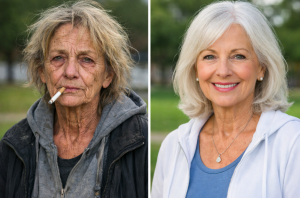Bob is one of my trusted friends.
We became friends when he was doing MBA at Wharton School and I was a postdoc in UPenn.
We chatted last weekend on the phone and I came to know he was suffering from a long illness.
I am compelled to write this piece of content based on two conversations that I had with him, one last weekend and the second conversation almost a year ago.
I wish my friend a speedy recovery.
I remembered our conversation from almost a year ago which was somehow like this.
“Bob, you are a very good investment officer, you’ve created and delivered tons of value for the society,” I said.
“But sometimes I cry and sometimes I scream, and I feel pain and headache when I go home in the evening,” Bob said.
I asked “do you have any idea, why”?
He said, “I have no idea but I become drained and overwhelmed. I don’t have time to heal and relax, my relationship and health both are deteriorating.”
“Bob, everybody has limits in life, you are exceptional in your area of expertise, investment and banking, it doesn’t mean you can serve any number of clients in a day including your private networking session in the evening, and I know, they all like and love you and need you.
It’s not that you can serve more clients because they like you, your body which is your engine also needs self-care, good fuel as a diet, quality rest and sleep, and nurturing family relationships.
My friend, you have one body to work on in this life so you must learn how to say ‘no’ to at least a few things so that you can optimize your life and health for the long run,” I added.
It’s not only Bob’s problem, we all want to be liked by everyone, every family member, every friend, every relative, every coworker, and every community member.
This is the natural human psyche.
But at one point when we introspect our life we realize that it is absolutely not possible to be liked by everyone.
In the progression of life, we come across many things which are affected by not being little different than just being nice.
Being nice all the time is fool’s errand
Usually being nice to everyone and being liked by them is not our choice, it’s not going to solve our life’s purpose and meaning.
We must be strong first before making others strong so that flight attendants always say put on your mask first before helping others.
Being nice to everybody always basically becomes a recurring tool to lie to yourself.
It should feel energizing, empowering, creative, but if it feels exhausting and unfulfilling, then we have to stop being nice to everyone.
So relying on saying ‘yes’ to everyone and everything is a fool’s errand.
When we say ‘yes’ to everyone, we stop being our authentic selves and start to pretend to be someone which we are not, and that’s not going to serve us as we work to step out into different roles in life.
Saying ‘yes’ to everyone and everything might be ‘no’ for our physical and mental space or recreation and relaxation time.
That could also be ‘no’ for self education or self healing time or community or household contribution.
This could impact negatively on essential things like health, longevity, and prosperity depending on our choice and calling.
Remember, saying ‘no’ from our mouth is a complete sentence, it’s not a word.
But to do this we need practice and it demands a little bit of extra work.
It doesn’t come naturally, so we have to practice for it by starting with small things.
The bottom line is: If we move in the path that we want to be liked by everyone, we, most of the time, make bad decisions and remain unhappy.
Ultimately, these bad decisions drain time and energy every minute, pile up mental space, and promote nonsense that doesn’t matter to us anymore.
Most importantly, it ignores the essence of our life’s purpose which are basically, who we are and what we want.
Nothing happens until we decide when and how to say ‘no’ to at least a few things, we have to make a habit and just watch how our life revolves around and moves forward.
One lesson I learned is we have to set boundaries to say ‘no’.
Boundaries aren’t about saying ‘no’ to my friends, family members and coworkers.
Boundaries are about saying ‘yes’ to myself.
All we need is an enforced boundary to protect our health, time, joy, peace, and fulfillment.
Just be clear and mindful, it’s our job to protect us mentally and physically, nobody else’s.
Boundaries are to serve our purpose and goal, not to hurt other people around us.
The habit of saying ‘no’ comes with an alternative mindset
One way to associate with the habit of ‘no’ is to make it a ritual by associating with the right people as per our life’s goals and desires.
This association teaches us to prioritize the important stuff and let go of many others.
At one point in my life, I always hung out with wrong people who were not strong enough to make good decisions about health and longevity.
They were always tired and lethargic by hustling and running all day, no proper diet, no quality sleep, no exercise, no mediation.
And everytime I used to say ‘yes’ to these people, I was also draining myself in my private life.
So, this is one of my own personal experiences.
We have to find a group of people who challenge and inspire us, we have to spend time with quality people, and it will change our thinking.
The habit of saying ‘no’ comes with an alternative mindset and inspiring people’s association helps to cultivate this mindset.
Research says that the people we habitually associate with determine as much as 95 percent of our success or failure in life.
Upgrading our association with quality people is about making choices that make us feel amazing and fulfilling.
Recalling Jim Rohn’s statement, “we are the average of the five people we spend the most time with.”
Remember, no one ever reached Mount Everest alone, there is always a squad to accomplish a goal.
Ronald Burt, a professor at the University of Chicago’s Booth School of business says, “most successful people are labeled as “brokers”, they move between different networks, pass information around and build bridges between groups.
We must be this kind of brokers to create and deliver values in the society.
From my own research, these people say ‘no’ 99 percent of the time and say ‘yes’ only one percent of the time.
Once they say ‘yes’ in anything, they always live with that decision.
Keep in mind, always ‘yes’ to everyone and everything robs our dreams.
Warren Buffett and Seth Godin on ‘no’ advice
Warren Buffett, one of the most successful investors of all time, says, “the key to success is to say ‘no’ to almost everything. The difference between successful people and really successful people is that really successful people say ‘no’ to almost everything.”
By making a habit of saying ‘no’ take our productivity actually up rather than down.
More mental space will be created by saying ‘no’ to many things.
What do we do with our new mental space?
It’s up to us how to use this free mental space.
We may not know immediately because dot connections in the mental space haven’t been discovered yet and real pictures don’t exist yet but eventually we grow neural connections and discover why we said ‘no’.
For example, if you would have asked anybody in 1990 about Facebook and Google websites, mobile applications, data analytics, and online merchandising, what would those people say?
They would say, “ this guy is sick, doesn’t know what he is talking about.
Facebook and Google are the result of new mental space and new neural connections by saying ‘no’ to many things by Mark Zuckerberg, Larry Page, and Sergey Brin.
By saying ‘no’ to many and ‘yes’ to few invites new neural connections that bring creativity and fulfillment.
Creativity and fulfillment involves breaking out of established patterns in order to look at things in different ways.
So to do this we must practice ‘no’ to many things.
We make habits gradually and build life on it and act on the basis of how we perceive the world.
Just skip your regular 30 minutes of mundane running for five days and try meditation, you will know what your body is looking for.
We start to see the world and our life as they are at the moment, not as they were and they will be.
Saying ‘no’ requires us to be present and gives us a fresh, positive perspective of the world.
Seth Godin, an author and prolific innovator says, “just saying ‘yes’ because you can’t bear the short-term pain of saying ‘no’ is not going to help you do the work.”
By the way, his book ‘The Dip’ has had a huge influence on me.
This book is mainly about quitting and focus.
Focusing our energy and our reserves on something we can be proud of and put our name on without using the sentence “I can’t” is an invaluable lesson.
Conclusion
The more we invest our ‘yes’ into mundane things, the more rigid our life becomes and the more sufferings we invite.
So please try to stop living always on auto-pilot, learn to say ‘no’ at least a few times and ‘yes’ to quality things that bring a healthy and joyous life with purpose.
Yam Timsina, PhD, writes primarily on health basics, scientific progress, social upliftment, and value creation.
Disclaimer: “Please note that some links in this post are affiliate links, which means I may receive a small commission if you make a purchase through them, at no extra cost to you.”





